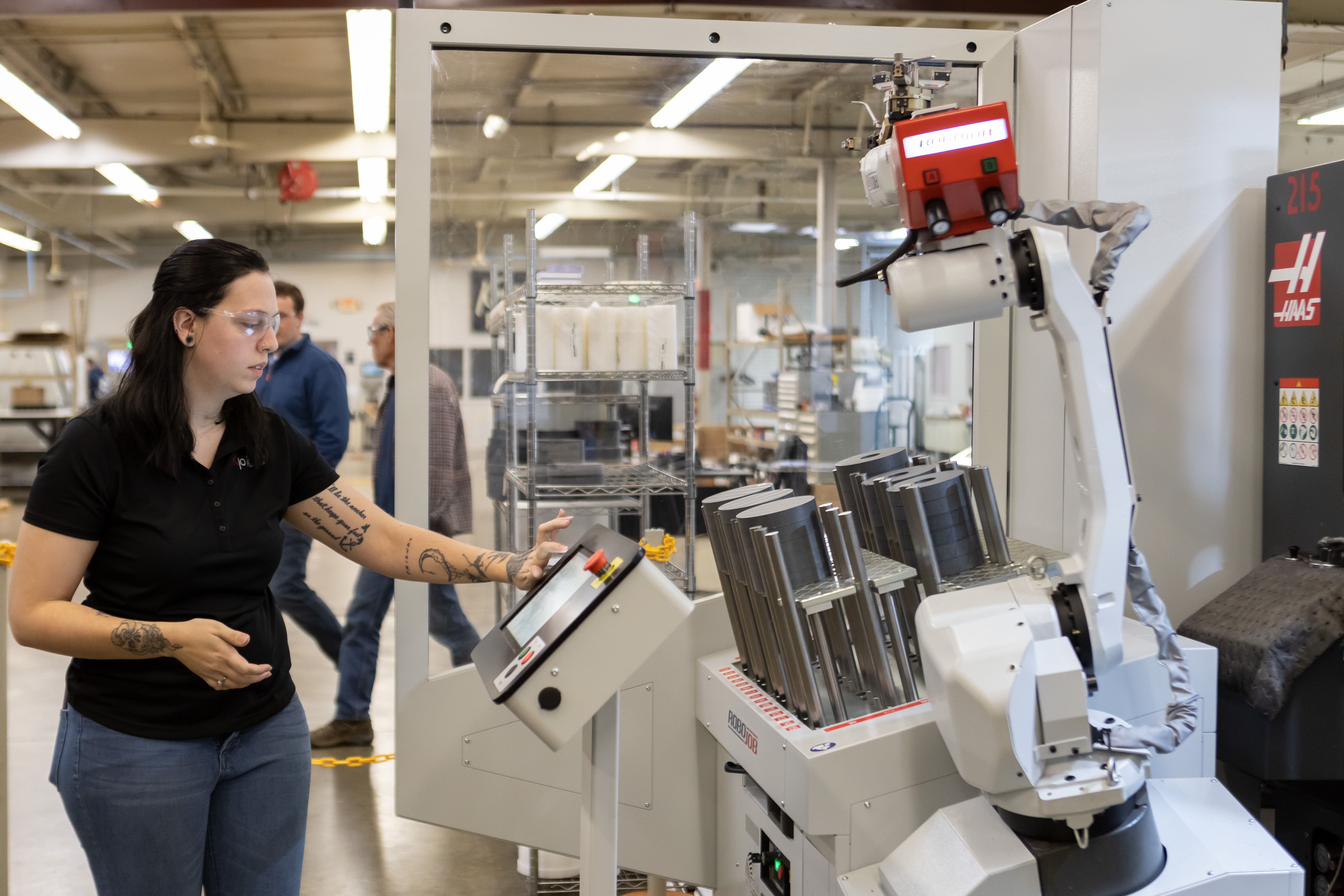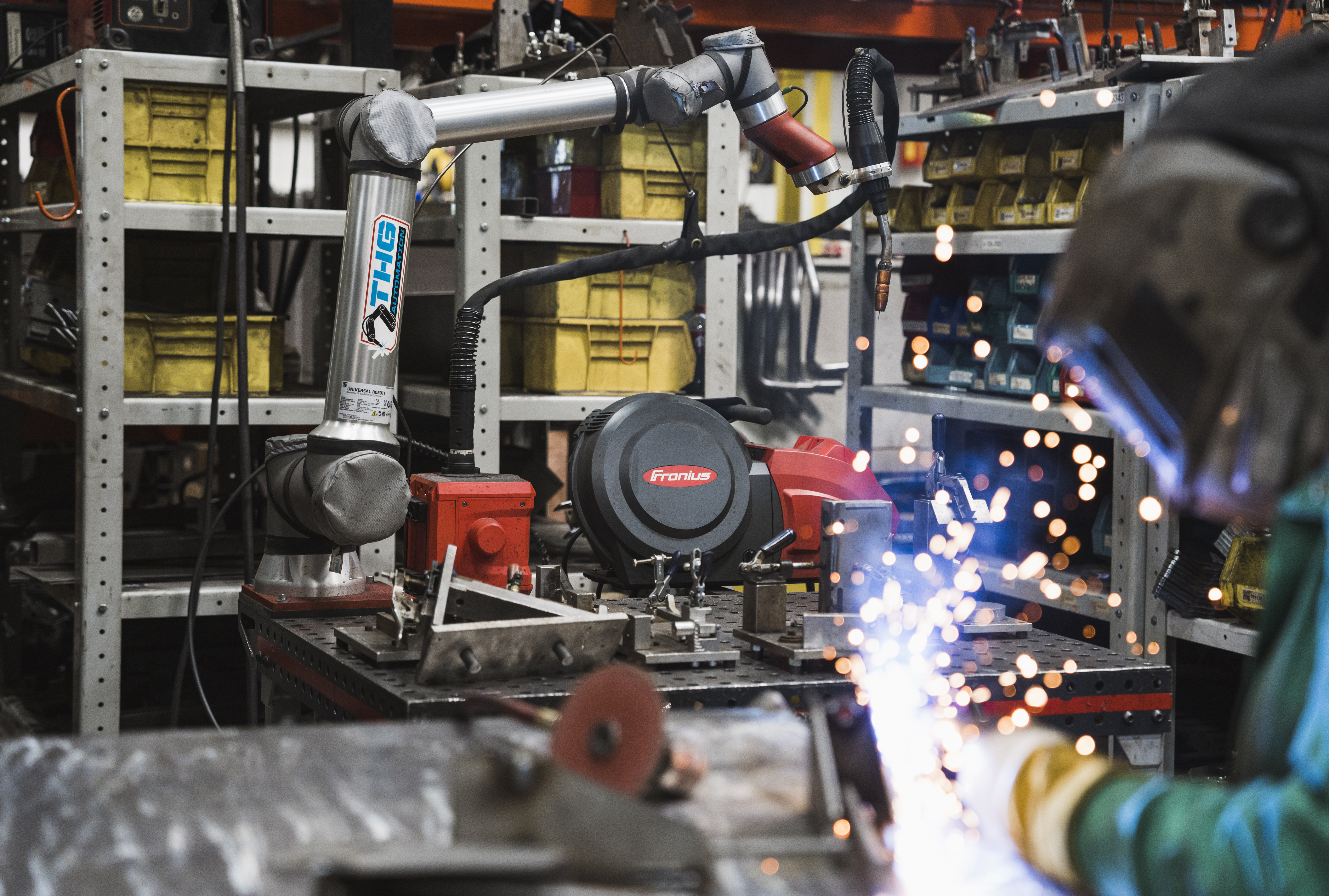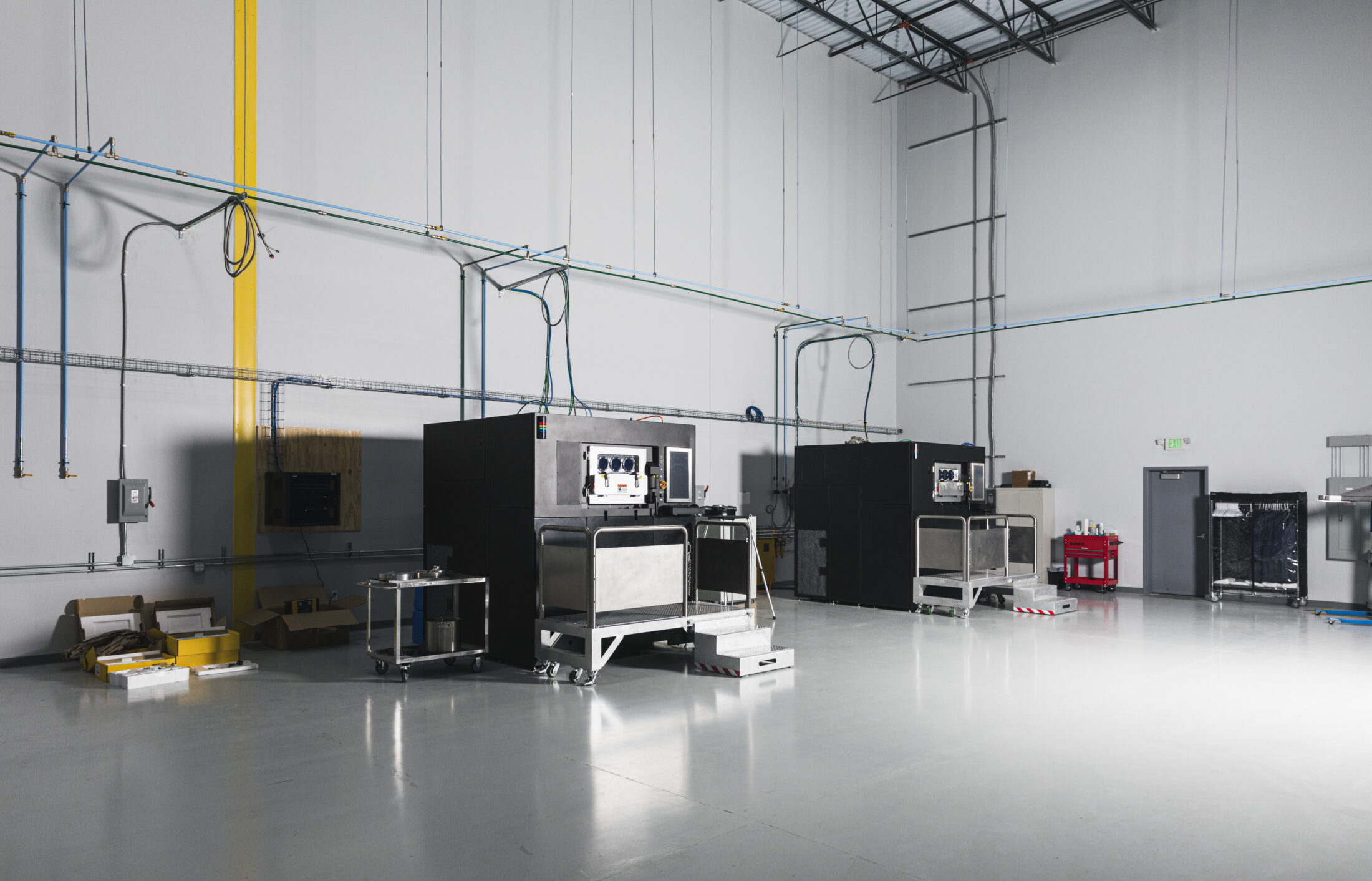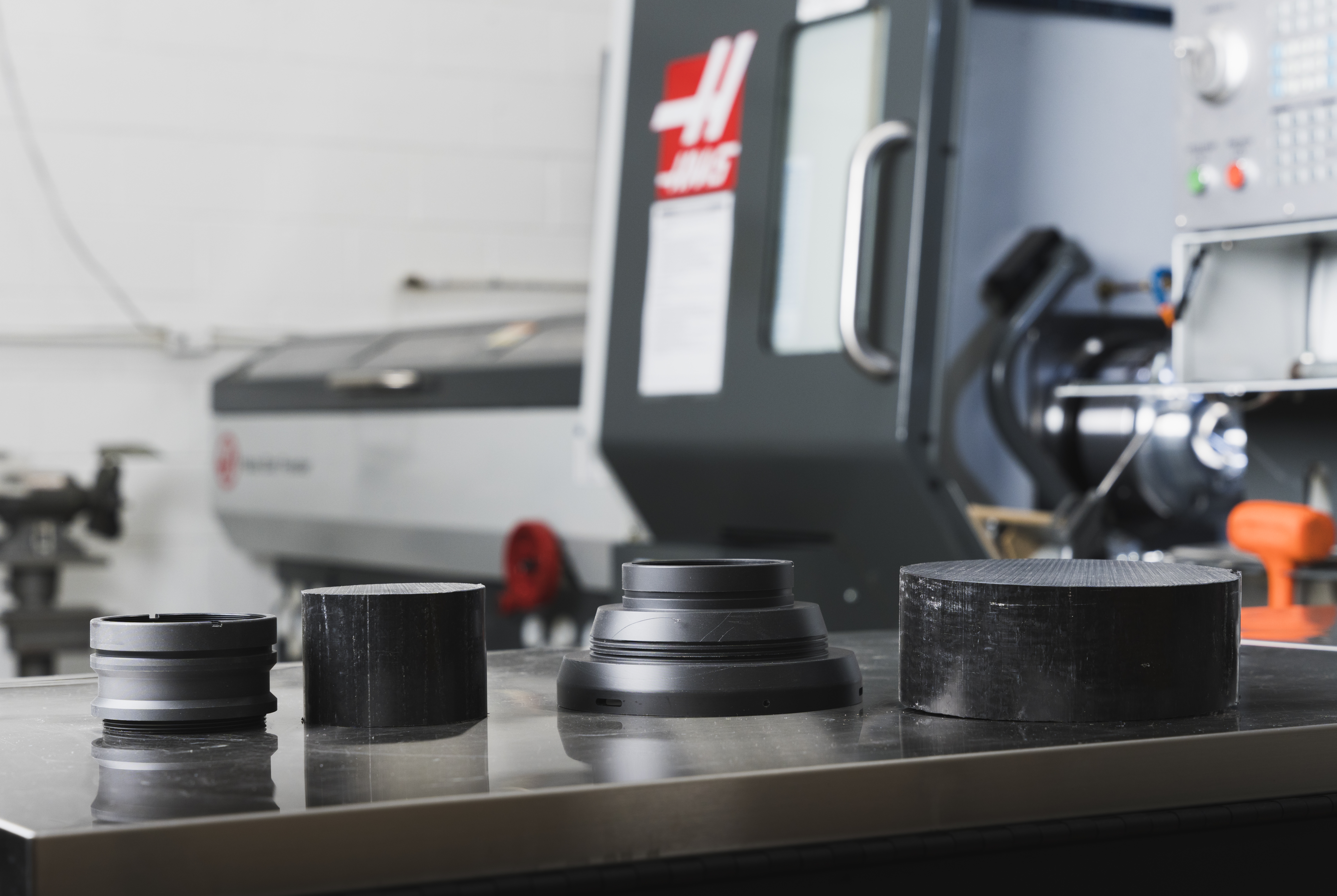The digital transformation of Indiana’s advanced manufacturing and logistics (AML) industries has two sides. There are the technology adopters (i.e., the AML companies that are end users of purchased hardware, software and equipment) and there are the technology providers: The network of systems integrators, software, hardware and automation vendors that deliver and deploy Industry 4.0 solutions into AML facilities, often assisting with project implementation, technology integration and workforce training.
When technology adopters and providers engage and collaborate effectively, they, their customers, the workforce and Indiana’s economy all benefit.
Conexus Indiana and the Indiana Economic Development Corporation have been working determinedly to activate and cultivate the demand side (the technology adopters) through a matched funding program called Manufacturing Readiness Grants (MRG). Over 600 applications later, with more than $625M of projected technology-enabled capital investment across the State of Indiana, it is fair to say that demand from Indiana manufacturers for innovative technology solutions is high.
And as Industry 4.0 projects grow in frequency, scope and complexity, Indiana’s manufacturing and logistics companies will increasingly rely on outside expertise from the AML Tech Ecosystem1 for application engineering, project implementation, software integration and workforce training.
While it is common for AML companies to appoint an internal champion to oversee a technology adoption project, firms are more likely to succeed when they partner with a tech ecosystem organization. The four MRG-supported examples below illustrate the point.
Manufacturer-Tech Ecosystem Partnership Examples
- Wood-Mizer, LLC in Batesville, Ind., deployed several collaborative welding systems to increase flexibility and automate its low-volume, high-mix applications. One shared learning from the Wood-Mizer North America president was “build trusted partnerships with local technology providers to accelerate project success.” THG Automation, based in Indianapolis, was that trusted partner. The combination of in-house welding expertise at Wood-Mizer and systems integration at THG Automation helped Wood-Mizer implement nearly a dozen cobot-based welding units in less than 24 months.
- Konrady Plastics in Portage, Ind., deployed two cobots paired with their HAAS lathes for machine tending with the help of Fusion Robotics/RoboJob-USA in Burr Ridge, Illinois. The project came about as Konrady Plastics is the plastic plate supplier to Fusion. With the arrival of a new business contract, which would significantly increase volume at its CNC lathes, Konrady saw the opportunities for automation and made its first cobot investment. Fusion/RoboJob USA provided crucial expertise in software integration between the lathes and cobots, getting the automation system up and running in less than one week.


- ADDMAN in Westfield, Ind., deployed state-of-the-art 3D metal printers with next-generation quality control software from Velo3D (California-based) to expand further into high-end, complex metal parts for aerospace, defense, automotive and other use cases. The partnership between the two companies continues to flourish, with ADDMAN planning to add two more 3D printers and Velo3D providing on-demand equipment support and ongoing development of its AssureTM software for quality control.
- Finally, Ikelite, an Indianapolis-based manufacturer of underwater camera systems, deployed a next-gen machine with software integration to bring an essential piece of component manufacturing in-house. Ikelite worked with two innovation organizations to execute its technology adoption project. Purdue’s Indiana Manufacturing Competitive Center (IN-MaC) helped determine the best use of new technologies and how to change the Ikelite manufacturing workflow. And NEFF Automation served as the systems integrator/technology provider to bring the new equipment and design software together.


These are just part of a growing number of examples in the MRG case studies. With the pace of Industry 4.0 accelerating, demand could eclipse supply unless the tech ecosystem organizations position themselves for growth.
AML Tech Ecosystem Focus Group
Interactions between manufacturing/logistics companies and the ‘Tech Ecosystem’ are foundational for digital transformation and critical for productivity gains within Indiana’s manufacturing-intensive economy. As such, Conexus Indiana invited 10 AML Tech Ecosystem companies on April 26, 2023, to explore how we can better work together to activate and cultivate relationships between the technology adopters and the technology providers. Event details can be found here.
Focus Group Key Learnings
- Double-down on grant programs: Increase the statewide awareness of Indiana’s MRG program and focus on areas of the state that have not seen significant penetration in terms of awards/grant funding.
- Increase knowledge and dissemination of Industry 4.0 resources: Highlight technology and automation roadshows, showcase blog posts, training programs and events held by the AML Tech Ecosystem companies.
- Ideation and technical assistance funding: Manufacturing and logistics companies could benefit from a ‘pre-seed fund’ to support the ideation of new technology deployments and assist in obtaining technical support from the AML Tech Ecosystem.
[1] The AML Tech Ecosystem is the network of systems integrators, software, hardware and automation vendors that deliver and deploy Industry 4.0 solutions into AML facilities, often assisting with project implementation, technology integration and workforce training.
Conexus Indiana (2023)
